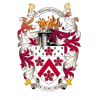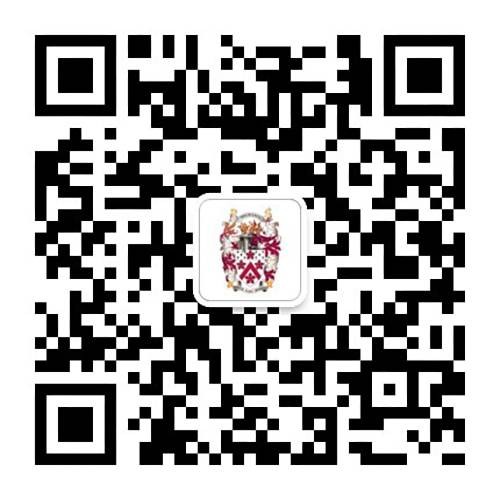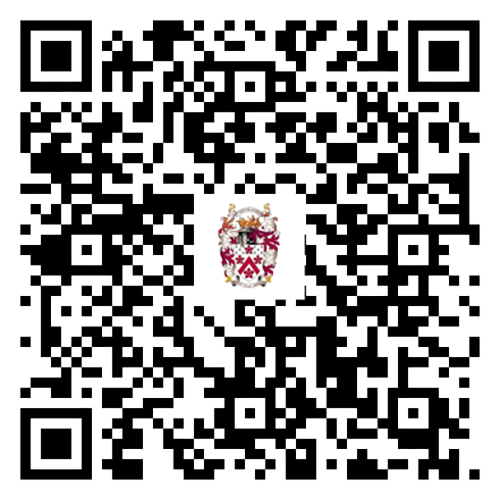How To Get the Most from Music in DUCKS
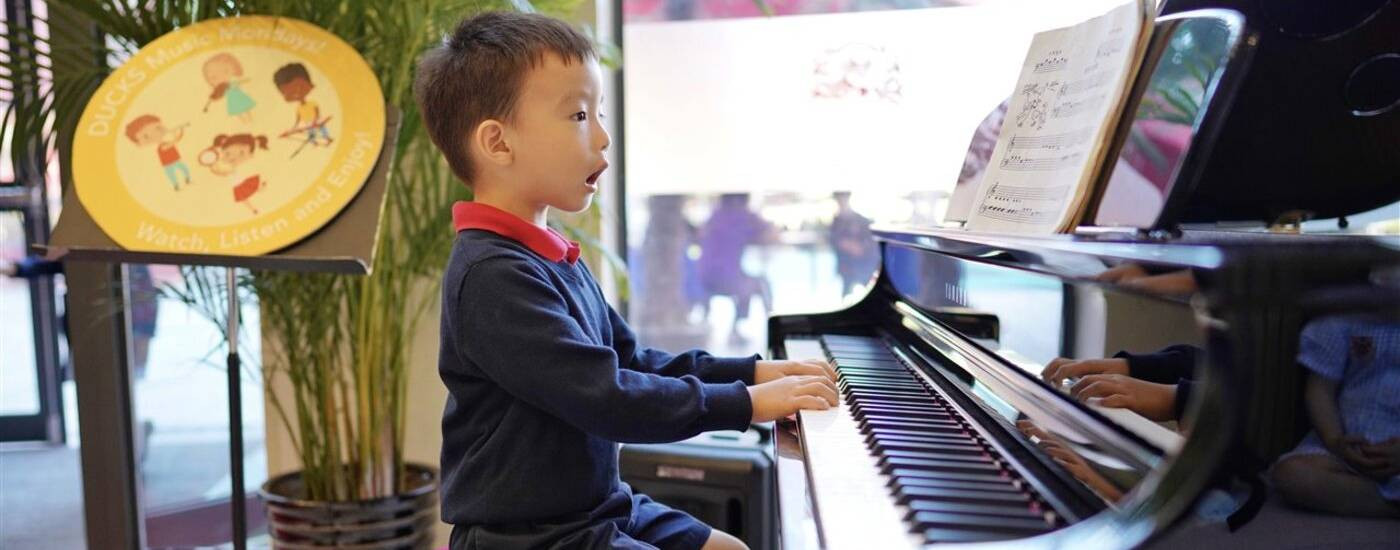
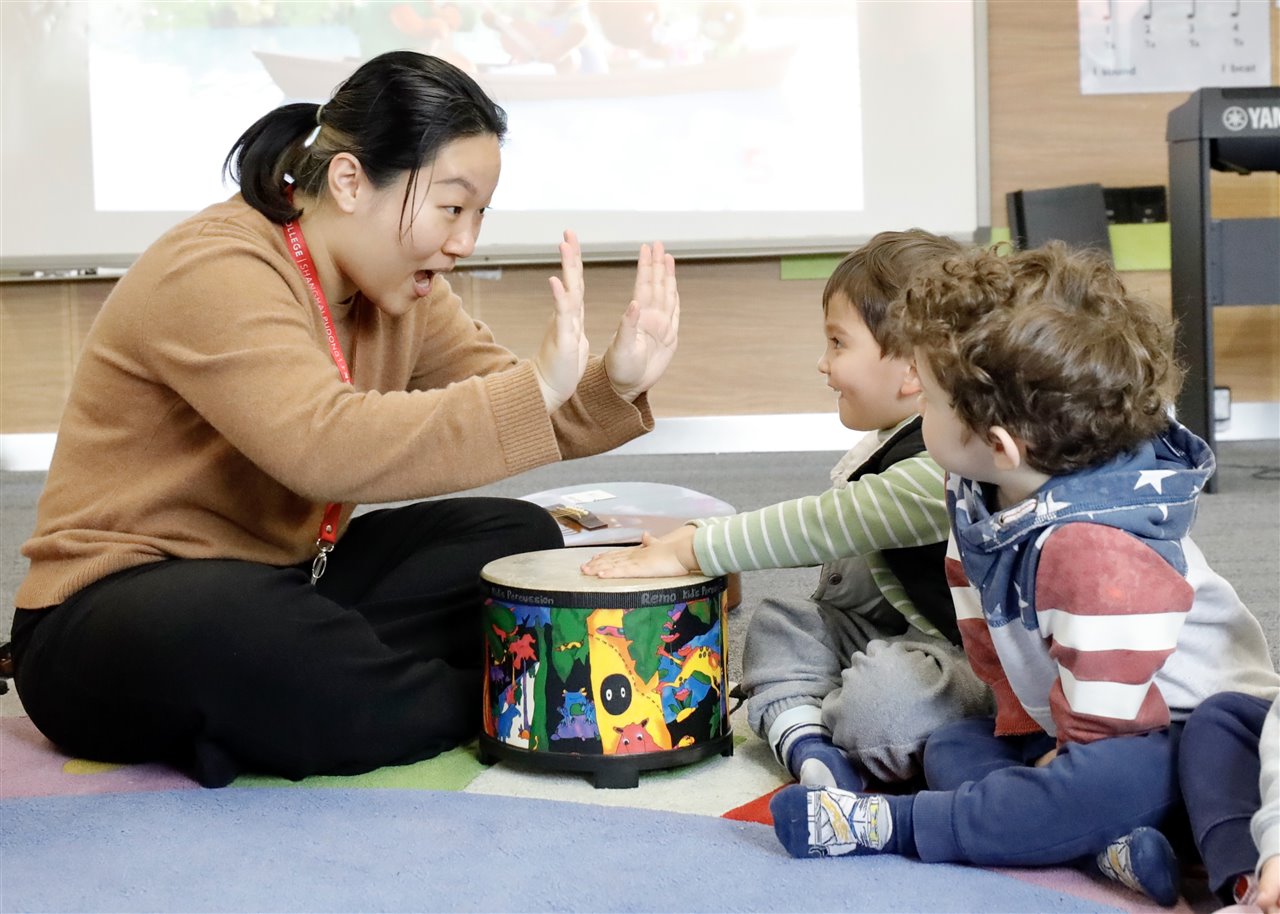
Parents of young children well understand the value of learning music.
Exposure to music is known to ignite many areas of child development including those important to school readiness such as intellectual, social-emotional, language, and overall literacy skills. It assists children in mastering the sounds and even meanings of words. Dancing to music helps children build motor skills while encouraging them to enjoy self-expression. Music even helps strengthen memory.
Recent research has gone further to suggest that musical experiences in childhood can actually accelerate brain development, particularly in the areas of language acquisition and reading. According to the National Association of Music Merchants (NAMM Foundation), learning to play an instrument can improve mathematical learning and even increase SAT scores.
Goodness! Is there anything music can’t do?
Perhaps that is why some parents may go overboard in pushing their children into music, valuing instrumental accomplishment over holistic development.
Our DUCKS music programme is designed to lay a foundation for a lifetime of musical appreciation.
“As an important part of our holistic approach, music at DUCKS is used to stimulate growth in all areas of child development,” shares Head of Music in DUCKS Ms. Oushu Lin. “Our DUCKS music activities are planned to achieve goals besides musical skills. For example music is known as a great tool in mood regulation! Parents with young children could listen to music together to improve, maintain, or intensify a mood.”
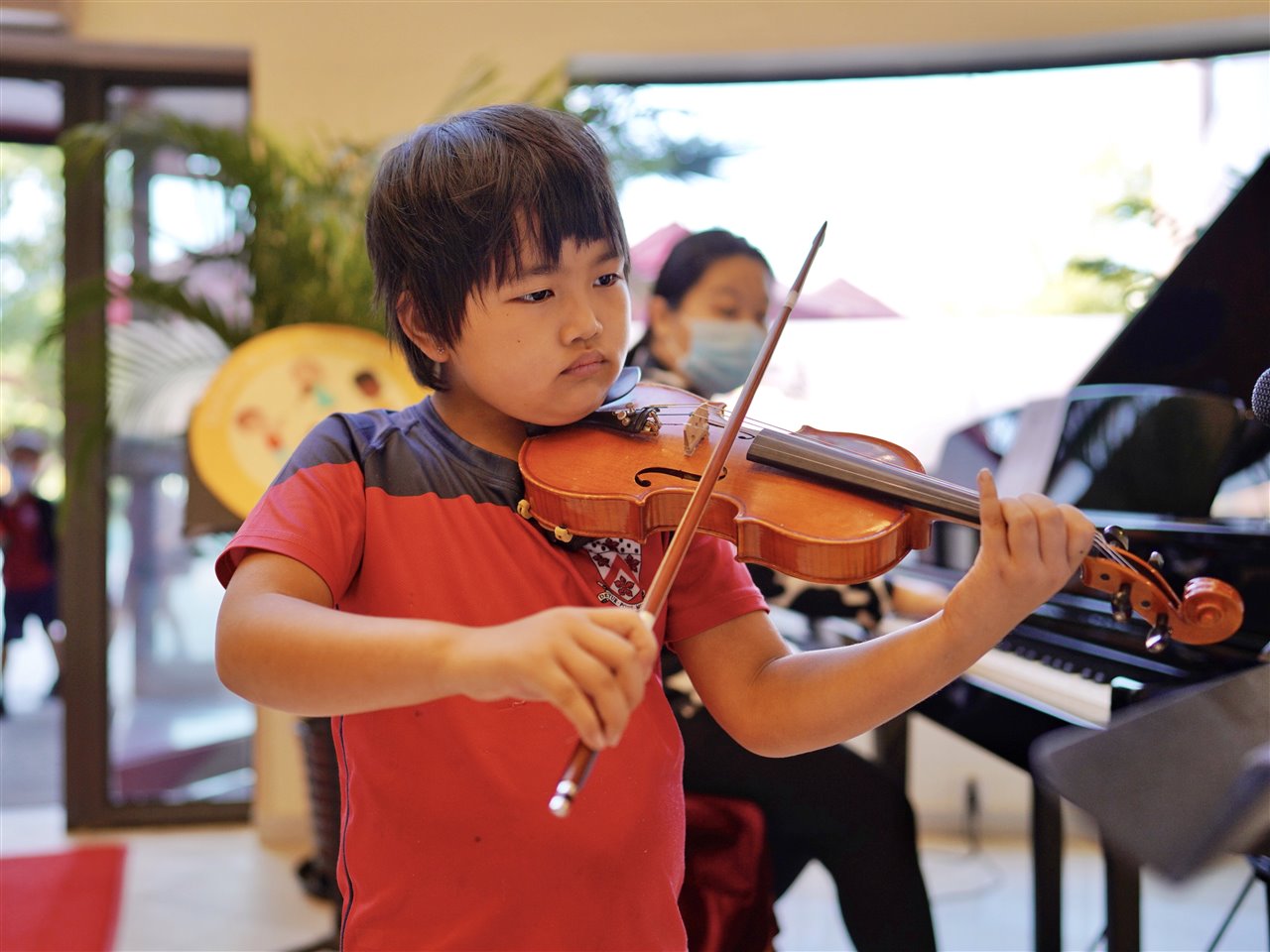
Music in Early Years (Toddler, Nursery, Reception)
Our approach to music at DUCKS is student-led, allowing each child’s natural interest and talent to develop in a meaningful way.
DUCKS children from Toddlers on up benefit from specialist music teachers. At the beginning, the teachers will visit the classroom for music in the environment; as the children become more independent they will move to our DUCKS Music Room for discrete music lessons.
In Early Years we focus on children's musical development from babyhood through to the start of school. The curriculum features four aspects of musical learning and development:
- Hearing and listening
- Vocalising and singing
- Moving and dancing
- Exploring and playing
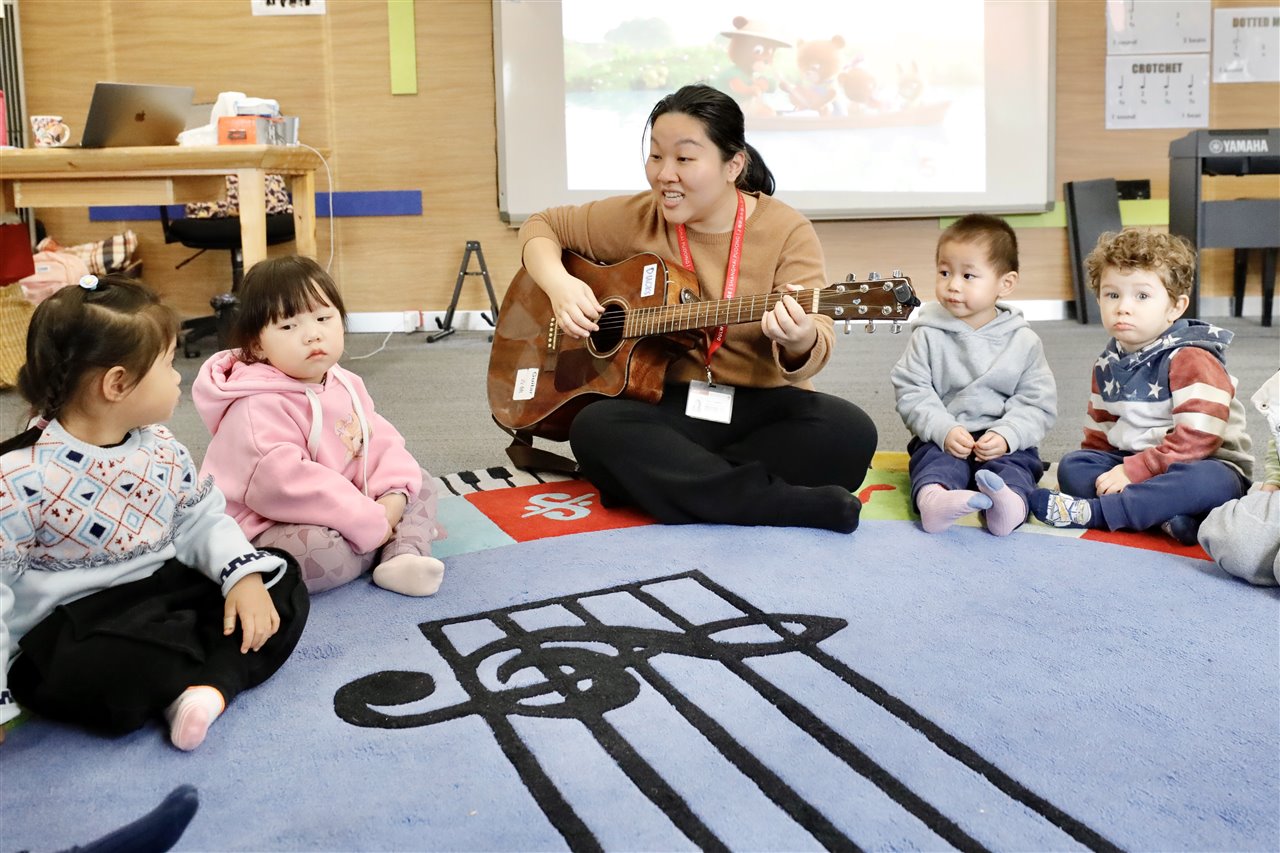
A typical Early Years music lesson is organised with multiple activities to support learning. For example,
- Activity 1 – Hello Song! Working on Joint Attention
- Activity 2 – Body Movements with percussion instruments
- Activity 3 – Learning a themed song chosen because of an upcoming holiday or even decided by the children themselves
- Activity 4 – Making musical experiences related to the themed songs
- Activity 5 – Reviewing the songs we have learnt
- Activity 6 – Goodbye
Fun is another keyword in the Early Years Music Room. We explore and play different percussion instruments such as drums, rhythm sticks, and xylophones. We also enjoy singing a variety of songs, including nursery rhymes, folk songs, and lullabies.
Skills beyond music are also developed, for example, verbal and non-verbal communication, as well as strengthening fine and gross motor skills.
Music is also an opportunity for creativity. Children compose new words to the familiar tunes. One memorable recent example:
The Elsa on the bus says let it go, let it go
let it go, let it go! let it go, let it go!
Music in Key Stage 1 (KS1)
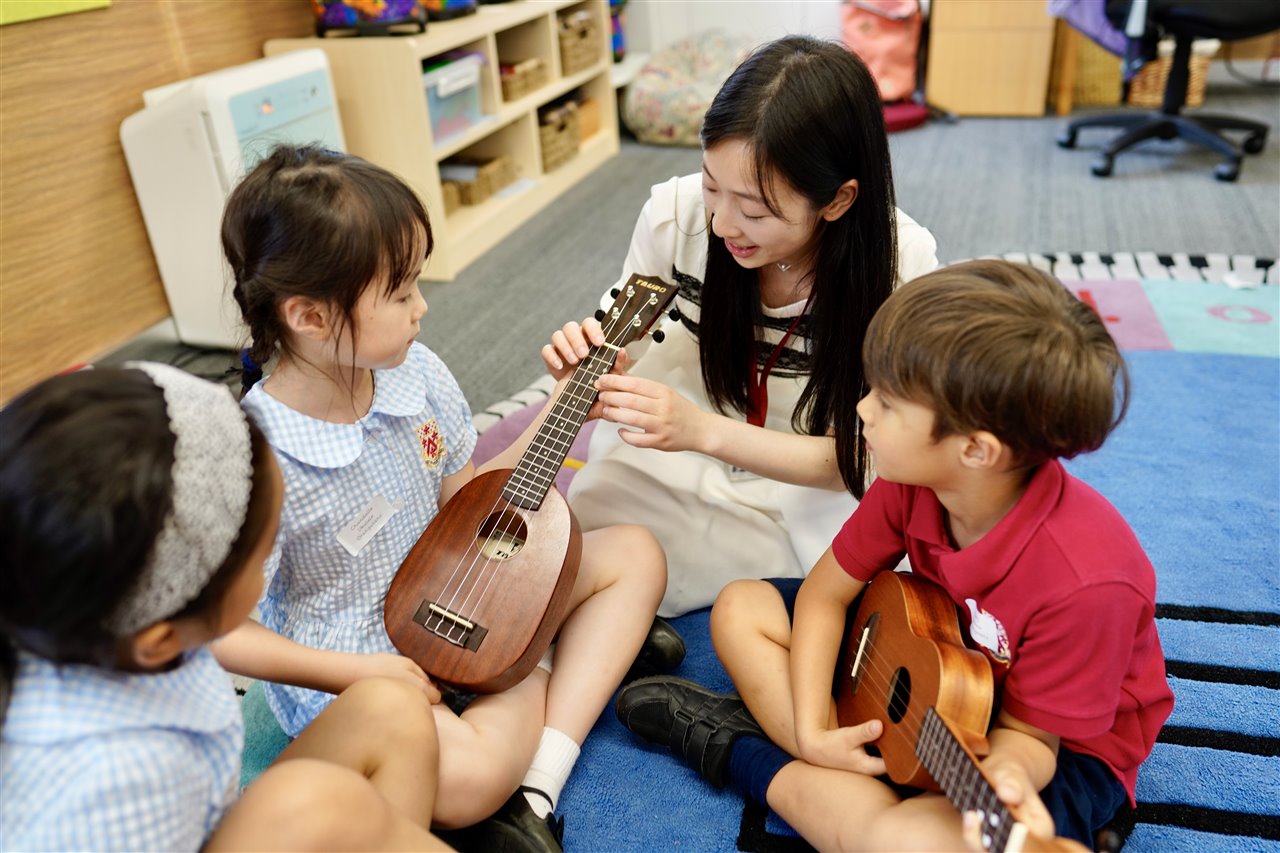
In KS1 (Year 1 and Year 2), music lessons last longer, and we approach music with more specific goals.
For example, music learning is arranged in a more skill-based style. We begin to learn how to read music with musical alphabets, understand basic rhythms such as crotchet, minim, semibreve, and their rests.
We also approach music in the context of Global Citizenship.
Music is a world language, and it shapes cultural identity. In our World Singing unit we use music to travel to different countries where we might learn about the similarity of tones between China and Scotland. We recently explored life in Ghana through music and greatly enjoyed calling and responding in African languages.
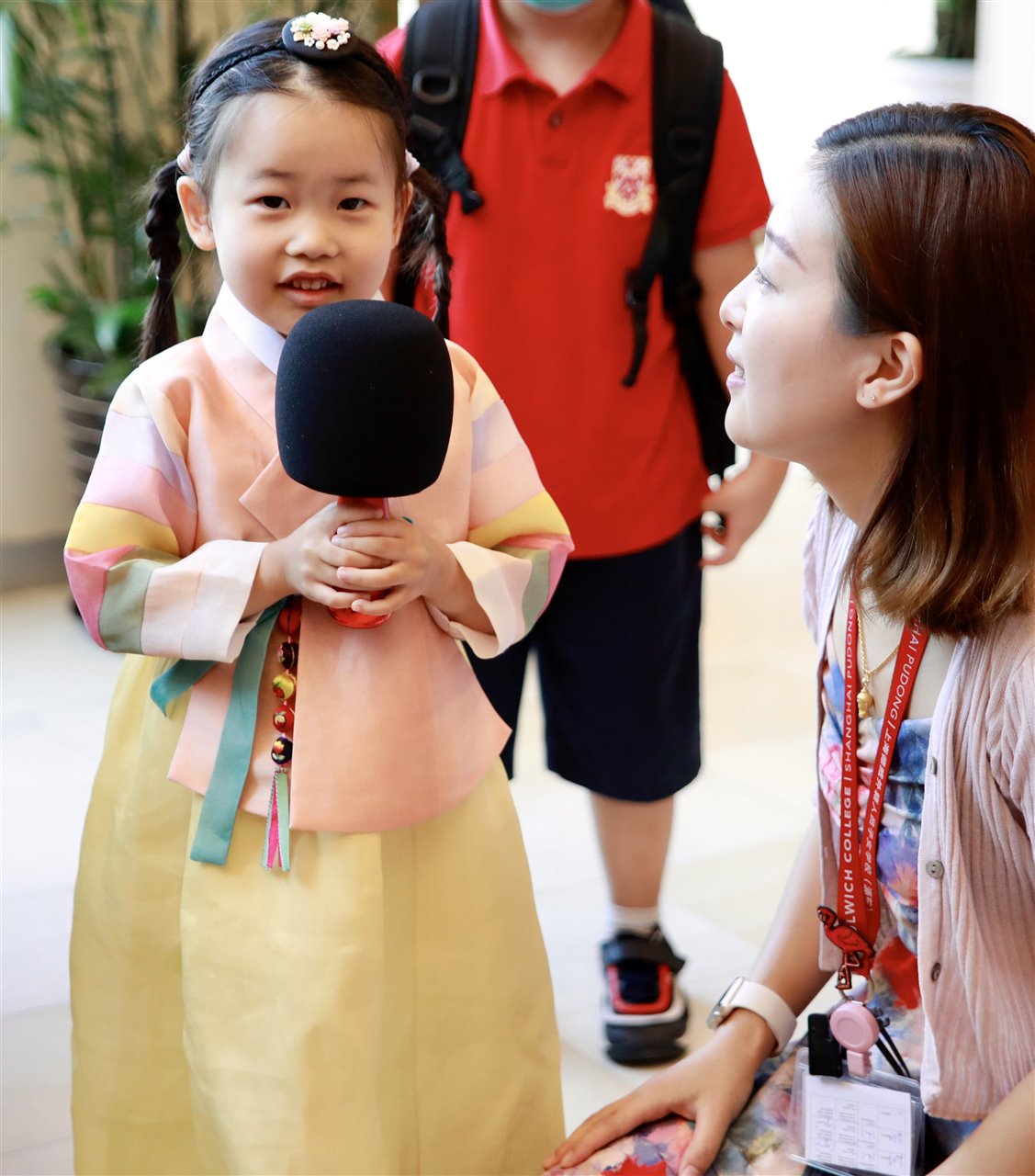
Developing cultural awareness is another musical goal in KS1. We listen to music from various traditions and genres, understanding how music presents aspects of the culture.
For example this year we explored Jazz music. We learned the song "Spring Spring Spring" which was adapted from the famous Jazz piece "Sing Sing Sing". We have also explored the character of Swing beat through percussion instruments and we danced with the catchy rhythms. Some children even tried their hand at scat singing.
In addition, children in Year 2 were challenged to identify instruments in a Jazz big band. It is a pleasure to hear students try to differentiate the clarinet from the recorder as they recognise similarities between these two instruments.
Fun is also a big part of music in KS1. We play traditional music ring games in Year 1. One of the most popular games is Blue Bird, where we learn to listen to musical cues and follow musical instructions.
Furthering the Musical Journey
We know that some children will display a particular interest in or aptitude for music. For Year 1 and 2 children who want additional opportunities to further their music journey we provide Co-curricular Activities such as Mulan choir, Mushu choir and ukulele.
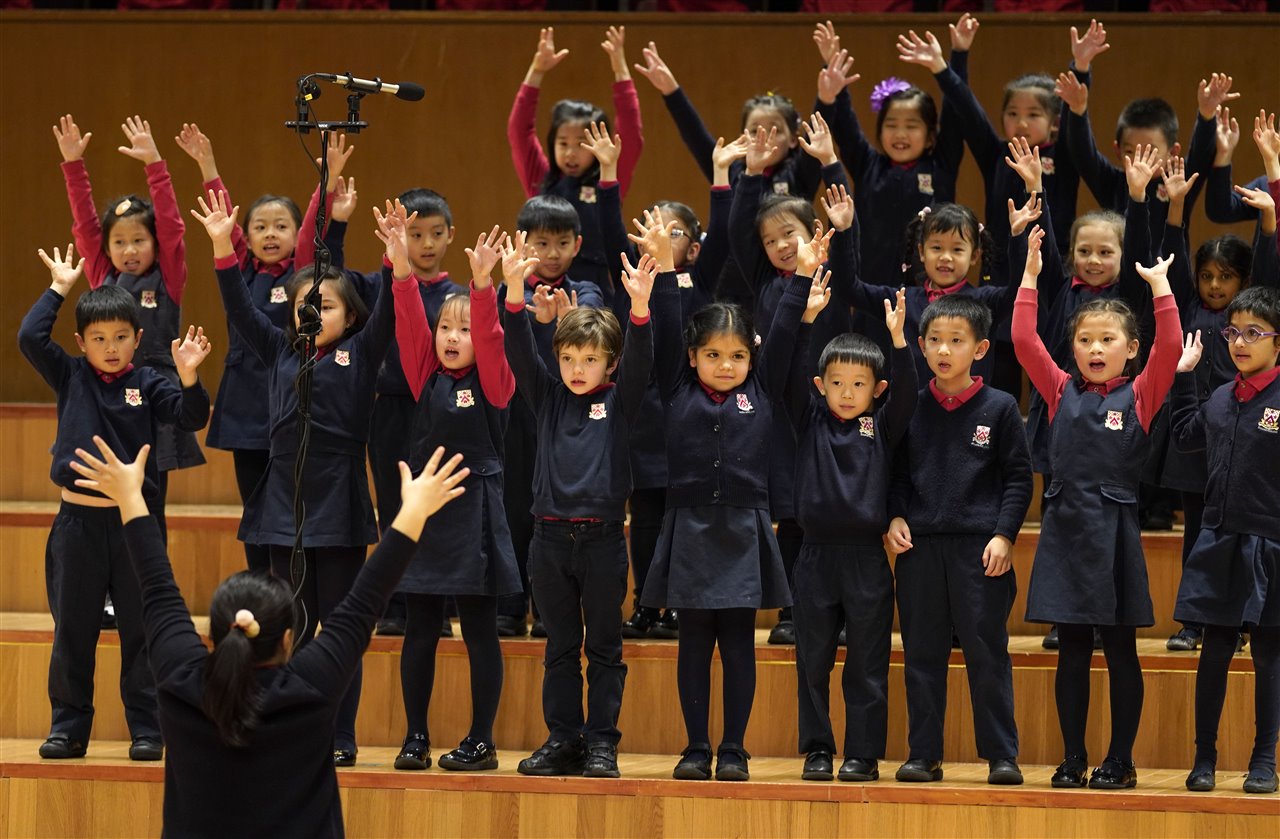
Students in our choirs not only sing, chant, play, and move with a variety of songs and dance, they also learn how to blend their voices with their peers and gain the confidence of singing with expression. Our choirs regularly perform at DUCKS assemblies as well as with other choirs and ensembles at Whole College concerts such as Founder’s Day which is always a thrill for them.
For children wanting to take their musical journey even further, we offer a robust Instrumental Tuition Programme (ITP) which our Year 1 and Year 2 students can take advantage of.
Our highly qualified instrument teachers set individual courses of study and may even recommend students sit music examinations. Instruments available to DUCKS students in Year 2 include Piano, Voice, Drums and Violin. Piano is also offered for Year 1 students.
From our holistic curriculum to CCAs to ITP, DUCKS children chart their own personalised musical learning pathways.
Advice for Parents
What about children who aren’t so musically inclined? Parents often feel demoralized if they spend a lot on lessons, but their children never seem to make progress.
Ms. Lin reminds us that music is about much more than ticking off ABRSM grades:
“Music is a whole-body experience, something that benefits a child in almost every facet of development. Not every child will end up performing at Carnegie Hall, but every child can develop a healthy appreciation for music. Let your child lead the way.”




